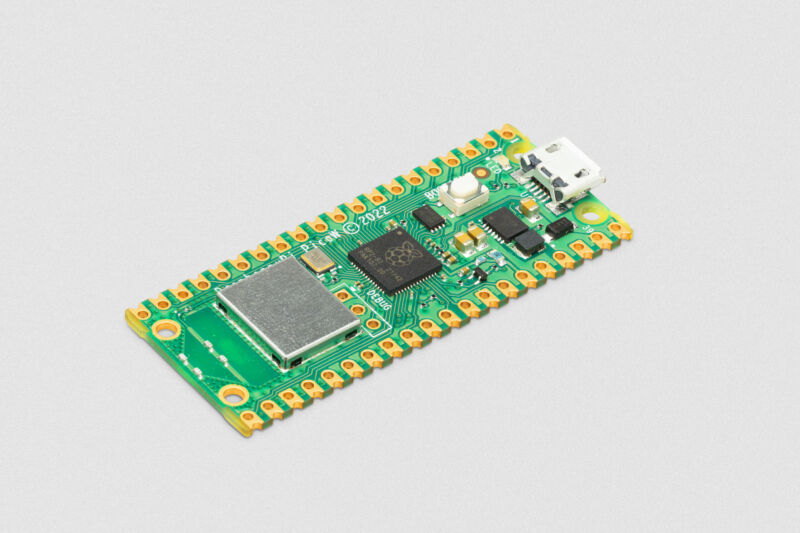The Raspberry Pi Zero series is the smallest version of the popular single-board computer that most people have experience with, but there's one Pi that's even smaller: the Raspberry Pi Pico. Launched in January of 2021 for just $4, the Pico's RP2040 microcontroller incorporates a pair of 133MHz Arm Cortex-M0+ CPU cores and 264 kilobytes (not megabytes) of memory. The low specs and low price make it well-suited for single-purpose devices that don't need much processing power instead of running general-purpose software like the larger Pi boards.
To help support companies who want to use the Pico as a basis for Internet-connected smart devices, the Raspberry Pi Foundation is introducing a few new variants of the Pico today. The most notable, the Raspberry Pi Pico W, adds built-in Wi-Fi connectivity to the board while increasing the price from $4 to $6.
Raspberry Pi founder Eben Upton writes that the Infineon CYW43439 Wi-Fi chip being used for the Pi Pico uses the old 2.4 GHz-only 802.11n (or Wi-Fi 4) protocol. That chipset also includes built-in Bluetooth support, like most other wireless Pi products, but Bluetooth support is currently disabled. Adding Bluetooth to devices typically requires another layer of Federal Communications Commission certification in the US, and other territories have their own rules, which could explain the omission. Upton says that Bluetooth support could be enabled "in the future."
There will be two additional versions of the Pico that add pre-installed header pins and a three-pin debug connector to the basic Pico board. Called the "Pico H," a version without Wi-Fi will cost $5 instead of $4, and a Pico WH version with Wi-Fi will run $7 instead of $6.



3175x175(CURRENT).thumb.jpg.b05acc060982b36f5891ba728e6d953c.jpg)
Recommended Comments
There are no comments to display.
Join the conversation
You can post now and register later. If you have an account, sign in now to post with your account.
Note: Your post will require moderator approval before it will be visible.